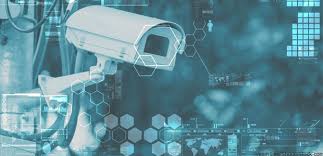 This past Tuesday, Michigan governor Gretchen Whitmer signed a “stay-at-home” order. The next day, the Attorney General’s office issued directions on how to report one’s neighbor to officials, as calls flooded the AG’s office with people tattling on their neighbors, local businesses still operating, and passersby. This is not unique. In other states, police are developing technology that allows citizens to report on their neighbors, like the MyBellevue app for a city in Washington that allows people to report suspicious gatherings to the police. While tattle-taling on your neighbor itself is alarming, the development of technology for the sole purpose of monitoring and reporting people to the authorities is reminiscent of communist regimes. During the age of technology, citizens should not be eager to sacrifice their individual liberties to governments through technological surveillance because it limits personal freedom and it gives governments too many opportunities for future surveillance. Foreign governments have used technology to limit freedom forcefully. In Italy, local police are legally allowed to use drones to make sure people abide by the quarantine. By flying drones around in urban areas, police are able to cover more ground and catch more people not abiding by the quarantine. This advanced technology transforms into a tool the government uses to spy on its people. Additionally, China uses technology to limit citizens’ freedom during the COVID-19 outbreak. However, China’s technology uses a much more invasive way of tracking its citizens. Chinese citizens are required to download an app (Alipay) which tracks their location and classifies each citizen with a code: green, yellow, or red. Green codes mean that citizens can work and use the metro; yellow codes mean that citizens must stay at home for seven days; and red codes mean that citizens must quarantine for two weeks. Because the government has not shared how the app determines color codes, fear has spread amongst the citizenry. China and Italy are just two countries of many (Taiwan, Czech Republic, South Korea, Israel) that have implemented or plan to implement technological surveillance to combat the Coronavirus and show us the dangers of implementing technology to curtail the spread of the virus. Not only do these technological surveillance tools limit freedom for the time-being, they capitalize on hysteria to lay down the building blocks for future governmental surveillance. Apps like the one in China pave the way for governments to keep a closer eye on citizens. Ben Powers writes that after the hysteria settles, people will grow accustomed to governmental control and will not oppose governmental surveillance, using South Korea’s reaction to the 2015 Middle East Respiratory Syndrome (MERS) as an example of establishing surveillance as something normal. While technological surveillance has not yet started in the United States, U.S. citizens should be wary because tech giants have reportedly considered talking to health officials and sharing user data in hopes to curb the effects of the Coronavirus. U.S. Legislators should heed Sen. Ed Markey’s advice in refraining from technological surveillance in order to prevent future surveillance. Markey warns that once the government infringes privacy, the government will possess highly sensitive and personal data that it could utilize for the wrong purpose, suggesting that tracking technology might “run the risk of violating Americans’ privacy.” Due to the fact that the American government still recognizes laws enacted during times of crisis and these laws have persisted, American officials need to seriously consider civil rights violations before signing a crisis bill. After the September 11 attacks on US soil, President Bush signed the Patriot Act, which oversteps privacy and gives governmental agencies authority to surveil citizens without their knowledge. For example, to gather intelligence, law enforcement agencies can request telephone records without reasonable suspicion. Though this Act was originally signed during a time of crisis, it still remains today. Though the Coronavirus has grave consequences, sacrificing our freedoms for a temporary problem is imprudent. Americans should rather focus on a more sustainable solution to this virus through the medical world rather than governmental regulation. Lord Acton, 19th century classical liberalist, wrote: “Power corrupts; absolute power corrupts absolutely.” Let’s not give some elite few the absolute power over our individual freedoms.
0 Comments
|
Jessica De GreeJessica teaches 5th grade English and History as well as 11th grade Spanish III at a Great Hearts Academy in Glendale, AZ. In addition to teaching, she coaches JV girls basketball and is a writing tutor for The Classical Historian Online Academy. Jessica recently played basketball professionally in Tarragona, Spain, where she taught English ESL and tutored Classical Historian writing students. In 2018, she received her Bachelor's degree in English and Spanish from Hillsdale College, MI. Archives
April 2020
Categories
All
|
|
SUPPORT
|
RESOURCES
|
|


 RSS Feed
RSS Feed



